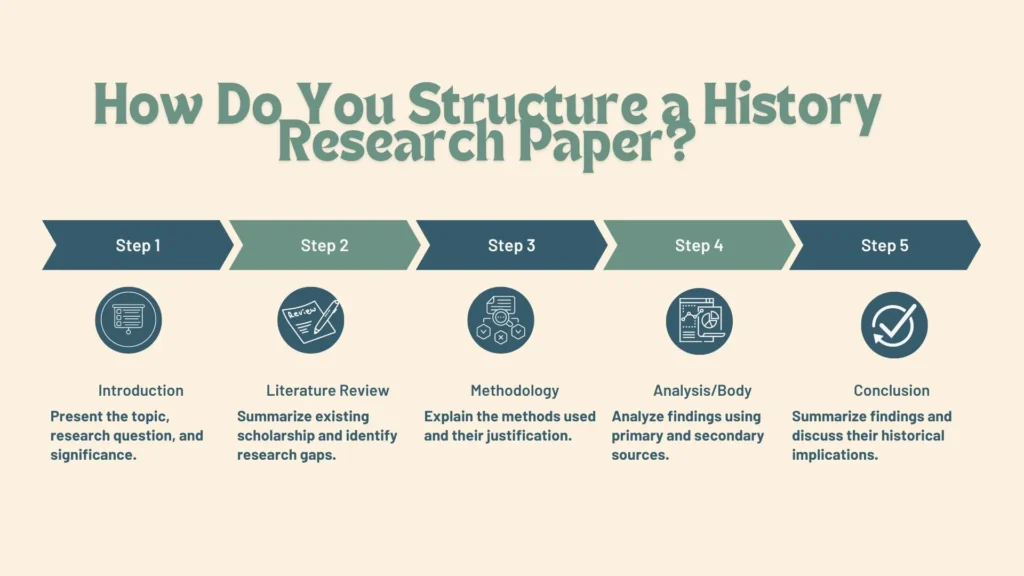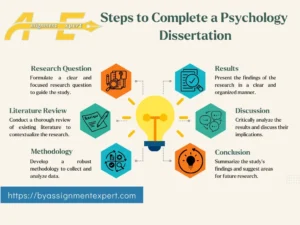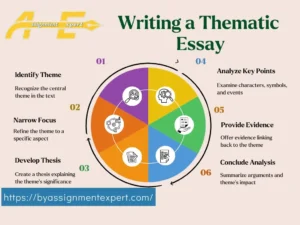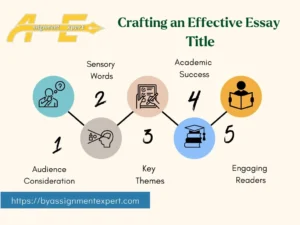- My Account |
- StudentHome |
- TutorHome |
- IntranetHome |
- Contact the OU Contact the OU Contact the OU |
- Accessibility hub Accessibility hub

Postgraduate
- International
- News & media
- Business & apprenticeships
Faculty of Arts and Social Sciences

You are here
- School of Arts & Humanities
- Postgraduate Research
Preparing a History PhD proposal
The carefully thought-out and detailed research proposal to be submitted with the formal application is the product of a sometimes prolonged negotiation with your potential supervisor. The supervisor may be enthusiastic about your project or might advise you to consider a different subject or change your angle on it; they may query aspects of your plan such as its breadth, the availability of primary sources or the extent to which you are familiar with the secondary literature. You may be asked to demonstrate the originality of your research question or be advised to consider applying to another institution which may have more appropriate expertise. During this process you will likely be asked to submit a specimen of written-up historical research, such as your Masters or BA dissertation. The sooner you start developing the structure that is expected in a research proposal, the more productive your exchanges with your potential supervisor will be.
You may find different advice for writing a research proposal across different OU webpages. Given that a research proposal can vary significantly across different disciplines, when applying to the History Department you should follow the guidance provided here.
The research proposal you submit in January should be approximately 1000 words, plus a bibliography, and should contain the following:
A title, possibly with a subtitle
The title should not take the form of a question and it may run to a dozen words or more. Like the title of a book, it should clearly convey the topic you propose to work on. A subtitle may explain the chronological or geographical focus of your work, or the methodological approach you will take. Choosing a title is a good way for focusing on the topic you want to investigate and the approach you want to take.
These are examples of poor titles and topics to research:
- Captain Cook’s Third Voyage
- Women in eighteenth-century England
These would be poor topics to research because they lack a strong question and it is not clear which approach they take to their already well-researched subjects. They are generic or merely descriptive.
Examples of good research topics
- Constructing the Eternal City: visual representations of Rome, 1500-1700
- Rearing citizens for the state: manuals for parents in France, 1900-1950
These projects combine a sharp chronological and geographical focus with a clear indication of how the sources will be analysed to respond to a precise question. In the first case, for example, the premise is that visual representations are critical in the making of a city’s eminence. This indicates the type of sources that will be analysed (paintings, engravings and other visual sources). The chronology is particularly well chosen because in these two centuries Rome turned from being the capital of the Catholic world to becoming the much sought-after destination of the Grand Tour; interesting questions of change and continuity come into focus.
Brief summary of your argument
An acceptable PhD thesis must have a central argument, a 'thesis'. You need to have something to argue for or against, a point to prove or disprove, a question to answer. What goes into this section of the proposal is a statement of your question and the answer you plan to give, even if, for now, it remains a hypothesis.
Why this subject is important
We expect originality in a thesis and so under this rubric we expect you to explain why the knowledge you seek on the subject you propose to work on is important for its period and place, or for historians’ views on its period and place. Finding some early-modern English laundry lists would not suffice on its own to justify writing a PhD thesis about them. But those laundry lists could be important evidence for a thesis about the spread of the Great Plague in London, for example.
Framing your research
Your proposal has to show awareness of other scholarly writing on the subject. This section positions your approach to the subject in relation to approaches in some of those works, summarising how far you think it differs. For instance, you could challenge existing interpretations of the end the Cold War, or you might want to support one historian or another; you could open up a neglected aspect of the debate - say by considering the role of an overlooked group or national government - and perhaps kick-start a debate of your own. All this is to show that you have read into your subject and familiarised yourself with its contours. We don’t expect you to have done all your research at the start, but it is essential for you to show familiarity with the key texts and main authors in your chosen field.
What sources might you need to consult in libraries and archives?
Here you should describe or at least list the primary materials you are likely to use in researching your thesis. This demonstrates your confidence that enough relevant sources exist to support a sustained scholarly argument. Many archival catalogues are available online and can be searched remotely, including The National Archives, the National Archives of Scotland, the National Archives (Ireland), the Public Record Office of Northern Ireland and Archives Wales. You can search the London-based Historical Manuscripts Commission and the National Register of Archives, both of which provide access to local county record offices. Databases such as ‘Eighteenth Century Collections Online’ and the British Library’s ‘British Newspapers Online 1600-1900’ will help you identify and locate relevant sources.
What skills are required to work on the sources you plan to use?
You need to show that you have the linguistic competence to pursue your research. With few exceptions, original sources must be read in the original languages; if the principal historical literature is not in English, you must be able to read it too. Palaeographic problems aren’t confined to ancient writing. You might have to tackle early modern or other scripts that are hard to decipher. Even with fluent German, an applicant baffled by the Gothic script and typeface would flounder without undertaking ancillary study. Training is available at The Open University, or in some circumstances you can be funded to undertake training elsewhere, and you should demonstrate awareness of the skills that you need to acquire.
Do you have the technical competence to handle any data-analysis your thesis may require?
Databases, statistical evidence and spreadsheets are used increasingly by historians in certain fields. If your research involves, say, demographic or economic data, you will need to consider whether you have the necessary IT and statistical skills and, if not, how you will acquire them.
How will you arrange access to the libraries and archives where you need to work?
Although primary sources are increasingly available in digitised form, you should consider that important sources may be closed or in private hands. To consult them may require some travelling and so you should be realistic as to what you will be able to do, particularly if you are applying to study part-time as not all archives are open out of regular office hours.
A bibliography
This should come at the end and include a list of the primary sources you plan to use and the relevant secondary literature on the subject. While you should show that you are on top of recent work (and of important older studies) on the topic, there is no point in having a long list of works only marginally related to your subject. As always, specificity is the best policy.
Please follow this link to see an example of a successful research proposal [PDF].
All this may seem daunting, as if the department is asking you to write a thesis before you apply. But that is not our intention; the advice is to help you perform the necessary spadework before entering the formal application process. Working up a proposal under the headings suggested above will, if your application is successful, save you and your supervisor(s) much time if and when the real work begins.
- Study with Us
- News (OU History Blog)

- @history_ou
Request your prospectus
Explore our qualifications and courses by requesting one of our prospectuses today.
Request prospectus
Are you already an OU student?
Go to StudentHome
The Open University
- Study with us
- Work with us
- Supported distance learning
- Funding your studies
- International students
- Global reputation
- Sustainability
- Apprenticeships
- Develop your workforce
- Contact the OU
Undergraduate
- Arts and Humanities
- Art History
- Business and Management
- Combined Studies
- Computing and IT
- Counselling
- Creative Arts
- Creative Writing
- Criminology
- Early Years
- Electronic Engineering
- Engineering
- Environment
- Film and Media
- Health and Social Care
- Health and Wellbeing
- Health Sciences
- International Studies
- Mathematics
- Mental Health
- Nursing and Healthcare
- Religious Studies
- Social Sciences
- Social Work
- Software Engineering
- Sport and Fitness
- Postgraduate study
- Research degrees
- Masters in Social Work (MA)
- Masters in Economics (MSc)
- Masters in Creative Writing (MA)
- Masters in Education (MA/MEd)
- Masters in Engineering (MSc)
- Masters in English Literature (MA)
- Masters in History (MA)
- Masters in International Relations (MA)
- Masters in Finance (MSc)
- Masters in Cyber Security (MSc)
- Masters in Psychology (MSc)
- A to Z of Masters degrees
- OU Accessibility statement
- Conditions of use
- Privacy policy
- Cookie policy
- Manage cookie preferences
- Modern slavery act (pdf 149kb)
Follow us on Social media
- Student Policies and Regulations
- Student Charter
- System Status
- Contact the OU Contact the OU
- Modern Slavery Act (pdf 149kb)
© . . .

How to Write a History Research Proposal
Research paper proposals form a necessary basis for any historical research project. A good proposal is eventually the backbone of a successful research paper in that it helps your thoughts, identify your research question, and put down a roadmap for your study. This blog will take you through the key steps and structure necessary to write an effective research proposal in history. A successful research proposal will help you to get the best history research paper .
Why Research Proposal in History
Purpose of a history research proposal exhibits a described plan for your research project. In this regard, it states what topic you wish to examine, what questions you want to answer, what sources you will use, and how you will set about it. The proposal aims to try to convince your instructor or a review team that your research is valuable, sustainable, and important.
Five Steps of Writing a Research Proposal
Writing a research proposal in history requires much planning and proper organization. Here is a step-by-step guide that shall help you get started:
Step 1: Choose an Appropriate and Interesting Topic
The first step in creating a research proposal is the topic selection, which needs to be relevant to the class and interesting to you. Your topic should be limited to a certain area but still general for proper research. Instead of choosing a broad topic such as “World War II,” it could be narrowed down to “The Role of Propaganda in Shaping Public Opinion During World War II.”
Step 2: Primary Research
Initial research before writing your proposal is needed to identify whether enough material is available on the topic you are associated with. In this respect, a general view of secondary literature, such as books and journal articles, is carried out.
Also, find primary sources that you can use to provide evidence for your research, which may include letters, diaries, government documents, or newspapers relevant to the period under study.

Step 3: Research Question or Thesis Statement
Your research question or thesis statement will be the basis of your research proposal. It needs to be clear, focused, and specific. A well-framed research question will enable you to sail more effectively in your research. For example, a topic such as “The Role of Propaganda in Shaping Public Opinion During World War II” can be changed into a research question.
Step 4: Explain Your Research Objectives and Approach
In this part of your proposal, indicate what your research objectives will be as well as the approach you will take to achieve those objectives. Your objectives should be specific and measurable. For example, several objectives may be to infer various literature posters, to contrast the literature with that released by other nations, and to examine the public opinion samples of the time.
The methodology section describes how the research will be carried out. Quantitative methods, such as statistical analysis, will involve analyzing public opinion data.
Step 5: Create a Tentative Outline for Your Research Paper
A cautious outline is an irregular plan that guides you in writing your research paper. It helps you put your ideas together and gives an idea of how your paper is going to look and sound. An overall history research would entail features such as:
- Introduction: This is the part where you introduce your topic, give the background, and incorporate your question into the research or statement of the thesis.
- Literature Review : Sum up earlier scholarship done on your topic and mention what gaps in the literature your research will attempt to fill.
- Methodology : Describe the methods you propose to adopt in conducting your research and give a rationale for these.
- Analysis / Body : Outline your analysis of the primary sources boosted with your secondary evidence. This is where the arguments should flow thematically.
- Conclusion: Sum up your findings, then discuss their implications for our understanding of the historical period or event that you have been studying.
How Do You Structure a History Research Paper?
You can follow the above research proposal writing guide and you can use it as a guide to structure your history research paper. Here’s a typical structure for a history research paper:

Drawbacks of Research Proposal Essay
- It is a time-consuming process and requires a great deal of preliminary research.
- It is a challenging task to narrow down a broad research topic
- One may be unable to formulate a focused question of research
- Perhaps scanty and unreliable primary sources
- A complicated methodology might not be easy to justify
- Failure to leave out significant scholarship
- The writing of a coherent literature review may be more challenging
Tips for writing a good research proposal
- A well-defined, feasible and interesting topic.
- Do wide preliminary research before writing.
- Clearly state a focused research question.
- Draw upon the relevant and credible primary and secondary sources.
- Objectives and the research methodology should be explicitly stated.
- The review of the existing literature should be discussed in a scholarly context.
- It should include an introduction which is clear, concise, and convincing.
- The proposal must be well-organized and appropriately structured.
Final Thoughts
Writing a research proposal for a history paper is extremely important to achieving any historical research both meaningfully and successfully. It allows you to flesh out your ideas, settle on a research question, and thereby work out a clear path on which your study shall be based. Though the process might be time-consuming, especially focusing on a topic or justifying your methodology, it is absolutely worth the effort.
This is where, if the steps and tips highlighted are followed, one can develop a sound and focused proposal that can form a solid basis for your research. You just exhibit creative ideas carefully with a view to transforming the proposal into a well-structured and attractive research paper.
Author info

Gulnaz Rasheed
Recent posts.

How to Write a Discursive Essay – Get Exclusive Insights

How to Write a Good Term Paper: Exclusive Insights With Examples

Perfect Psychology Dissertation Writing Guide

Perfect Approach to Write a Thematic Essay

How to Title an Essay, a Practical Guide

Writing a Discussion Section in Research Paper
- +44 7598 751111
- [email protected]
Payments we received


IMAGES
VIDEO